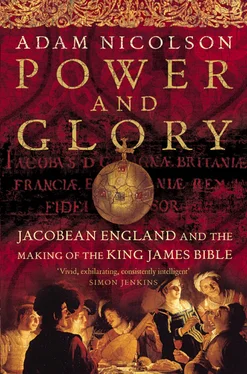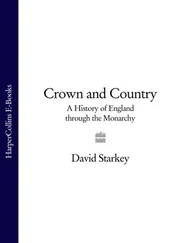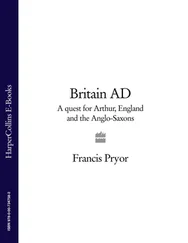The city seemed to be rising and falling at the same time. Ministers were climbing into trees and preaching seditious novelties to the chance crowds in the graveyards below them. Crowds cluttered the narrow medieval thoroughfares. Outside the theatres, as the city corporation complained, âthere is such a resort of people and such multitudes of coaches ⦠that sometimes all our streets cannot contain themâ.
At the urging of radical Puritan ministers, maypoles, stored from one Maytime to the next under the eaves of city houses, were being cut up and used as firewood, each house allotted its length for an eveningâs blaze. There were plans to pave the Strand but for now every winter it was ooze.
London was more of an agglutination than any kind of classical construction, buildings stuck together and clotted as a mass of swallowsâ or batsâ nests. The many official attempts in the first decade of the century to clarify and cleanse the city, to impose order and uniformity on its bubbling and anomalous being, repeatedly failed. This animal aspect of London was always too powerful. When William Harvey, the physician, anatomist of the human heart and friend of several of the Bible Translators, wanted to describe the different parts of the gut, the comparison that naturally came to mind was the streets of his own city: the alimentary canal, he wrote in 1613, was like the long wandering thoroughfare that ran âfrom Powles to Ledenhale, one way but many names, as Cheape, Powtry, &c.â.
If the city was a body, in the summer of 1603 that body was diseased, or at least parts of it were, particularly those occupied by the poor. They suffered from plague more than the rich because they were wicked. The London parishes in which they lived were the disgusting ones, filled with reprobates: near the docks, in the suburbs outside the old walls where building had been haphazard and unregulated, at Houndsditch where dead dogs were indeed thrown into the rubbish-filled ditch. The word âsuburbâ still carried some of its Latin effect. If urbs was the city itself, sub-urbs were the under-city, the lower part. Should any of the poor wander into the richer parishes, particularly if they were visibly sick or weak, the churchwardens would have them taken back to the slums with which London was ringed. Those who were dying in the back alleys of St Bartholomew Exchange or St Saviourâs Southwark were to be kept there. Eight hundred plague deaths occurred in a single building in 1603, an enormous, abandoned town palace, so subdivided that it could house 8,000 people. In the suburbs outside Cripplegate and Bishopsgate, growth had been so rapid that the parish officials trying to trace the boundaries on the annual beating of the bounds had to break their way through peopleâs gardens and backyards. Markets at Queenhithe, Billingsgate, Bridewell and Smithfield â as well as the cityâs main granary across the river in Southwark â were the breeding grounds of rats, but also magnets for human vagrants, the corrupt and ragged fringes of unintegrated society. These were the places where the poor lived and where child mortality in an ordinary year ran higher than anywhere else in England. Approaching a quarter of all children born in England would die before they were ten (a rate higher than in any country in the modern world); in these slums, the proportion of child deaths could triple. Plague simply exaggerated the savage social distinctions of everyday life.
But there was something strange about the plague: it seemed to pick and choose among its victims. Why? Nicholas Bound, a Puritan Sabbatarian, had the answer. His pamphlet, Medicines for the Plague , published in 1604, is alive with both the appalled anxiety of the time and a terrifying certainty over Godâs role:
For what is the cause that this pestilence is so greatly in one part of the land, and not another? and in the same citie and towne why is it in one part, or in one house, and not in another? and in the same house, why is it vpon one, and not vpon all the rest, when they all liue together, and draw in the same breath, and eate and drinke together, and lodge in the same chamber, yea sometimes in the same bed? what is the cause of this, but that it pleaseth the Lord in wisdom, for some cause to defend some for a time, and not the rest? Therefore let vs beleeue, that in these dangerous times God must bee our onely defence.
As another preacher, Thomas Pullein, said in Ieremiahâs Teares , published in 1608, the plague is nothing but âthe will of God rightfullie punishing wicked menâ.
Henoch Clapham, a wild and cantankerous Puritan controversialist, claimed in one 1603 pamphlet that people who saw anything in the plague but a working of the divine will were âatheistes, mere naturians and other ignorant personesâ. Clapham had seen men and women, walking the streets, suddenly stumble and collapse, clearly knocked down by one of Godâs avenging angels. One only had to inspect them afterwards to see âthe plaine print of a blue hand left behind vpon the flessheâ. And what had medicine got to do with that? (The modern use of the word âstrokeâ to mean an apoplectic seizure is a faint memory of that angelic blow.)
By midsummer, London under plague now looked, sounded and smelled like a city at war. It was by far the worst outbreak England had known. Here now, grippingly, and shockingly, the first and greatest of the Bible Translators appears on the scene. It is not a dignified sight. Lancelot Andrewes was a man deeply embedded in the Jacobean establishment. He was forty-nine or fifty, Master of Pembroke College, Cambridge. He was also Dean of Westminster Abbey, a prebendary of St Paulâs Cathedral, drawing the income from one of the cathedralâs manors, and of Southwell Minster, one of the chaplains at the Chapel Royal in Whitehall, who under Elizabeth had twice turned down a bishopric not because he felt unworthy of the honour but because he did not consider the income of the sees he was offered satisfactory. Elizabeth had done much to diminish the standing of bishops; she had banished them from court and had effectively suspended Edmund Grindal, the Archbishop of Canterbury whose severe and Calvinist views were not to her liking. Andrewes, one of the most astute and brilliant men of his age, an ecclesiastical politician who in the Roman Church would have become a cardinal, perhaps even pope, was not going to diminish his prospects simply to carry an elevated title.
Andrewes plays a central role in the story of the King James Bible, and the complexities of his character will emerge as it unfolds â he is in many ways its hero; as broad as the great Bible itself, scholarly, political, passionate, agonised, in love with the English language, endlessly investigating its possibilities, worldly, saintly, serene, sensuous, courageous, craven, if not corrupt then at least compromised, deeply engaged in pastoral care, generous, loving, in public bewitched by ceremony, in private troubled by persistent guilt and self-abasement â but in the grim realities of plague-stricken London in the summer of 1603, he appears in the worst possible light. Among his many positions in the church, he was the vicar of St Giles Cripplegate, just outside the old walls to the north of the city.
The church was magnificent, beautifully repaired after a fire in 1545, full of the tombs of knights and aldermen, goldsmiths, physicians, rich men and their wives. The church was surrounded by elegant houses and the Jewsâ Garden, where Jews had been buried before the medieval pogroms, was now filled with âfair garden plots and summer-houses for pleasure ⦠some of them like Midsummer pageants, with towers, turrets and chimney-topsâ.
Читать дальше












